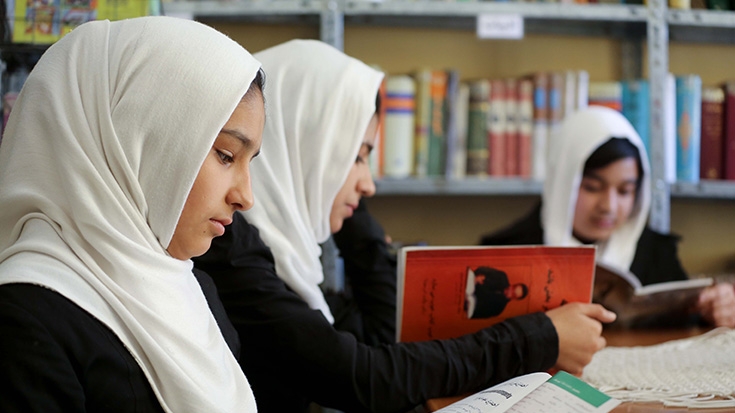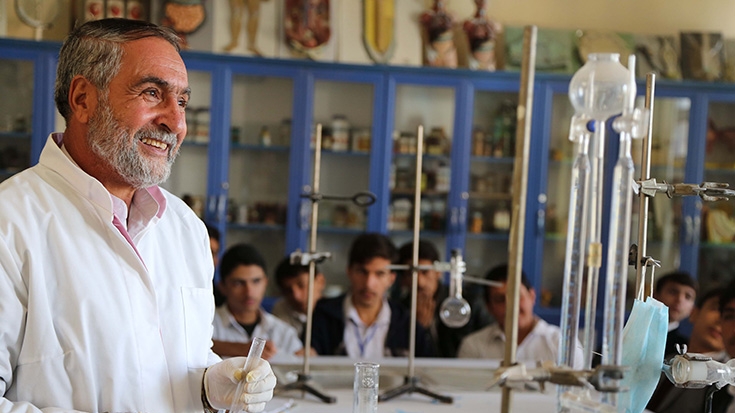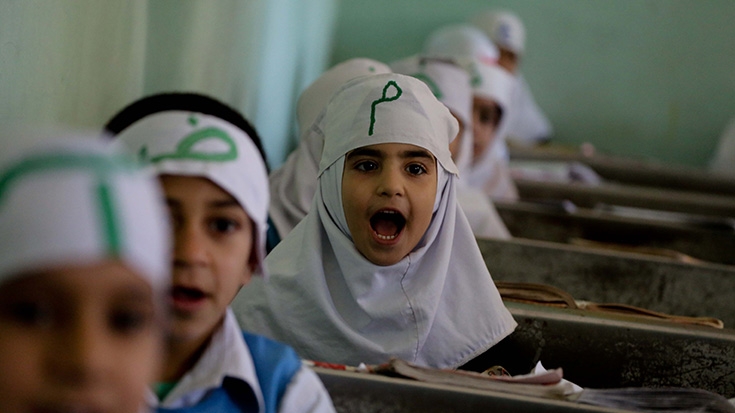Grants raise quality of basic education
Herat Experimental Girls’ School has been able to offer these resources to their students with the assistance of Quality Enhancement Grants (QEGs) from the Education Quality Improvement Program (EQUIP). It is one of 540 schools in Herat Province that have benefited from QEGs since 2007. The school has received some US$50,000 in grants since then.
EQUIP is implemented by the Ministry of Education and supported by the World Bank and Afghanistan Reconstruction Trust Fund. EQUIP’s objective is to increase equitable access to quality basic education, especially for girls, through school grants, teacher training, and strengthened institutional capacity with support from communities and private providers.
To date, based on school improvements plans, QEGs have been distributed to schools that use them for purchase of school supplies, laboratory equipment, and other materials that help strengthen the learning environment. So far, a total of 16,587 schools across Afghanistan have received QEGs (of which 5,045 received a total amount of US$14.3 million as a first generation grant and 11,542 schools received a total amount of US$22.9 million).
Parents sustain projects
The biggest achievement of the program, however, is the sustainability of the projects supported by the grants. “The grant mobilized the people and prepared them to help us keep the program running; when this project is over, the parents will assume the role of the funders of this project, thereby ensuring sustainability,” says Abdul Qadeer Salehi, the manager of the program in Herat City.
Herat Experimental Girls’ School is a good example of this achievement. “In 2012, we received a US$40,000 grant from QEGs to build a two-storey building for the school,” says Basira Basiratkhwah, the school’s principal. “The funds we received were only sufficient for constructing the first floor of the building while students’ parents pledged to contribute to the construction of the second and third floors.”
The grants have allowed for a tremendous increase in the level of knowledge and awareness amongst students according to Basira, adding that alongside other resources, they have access to computers and Internet too. There are 20 computers with Internet connections at the computer laboratory and 1,000 books in the library. These resources are used by 3,600 students in three shifts.
“The library and computer lab are so handy for quicker access to information and greater progress in our lessons. In the past we had to go to government libraries or Internet cafes in search of information, which would waste our time immensely,” says Elaha, 15, a student at this school.
Another school that has greatly benefited from QEGs is Inqelab-e-Islami High School, another popular school in Herat Province. A significant part of the grant went to the building of the 32-room school at the cost of US$225,000. An additional US$8,000 has also been spent on development of a laboratory and a library, and provision of advanced teaching materials for the school.
“The Inqelab-e-Islami school desperately needed all of this. Whatever we have today is thanks to QEGs,” says Naseer Ahmad Ferotan, the school’s principal.



